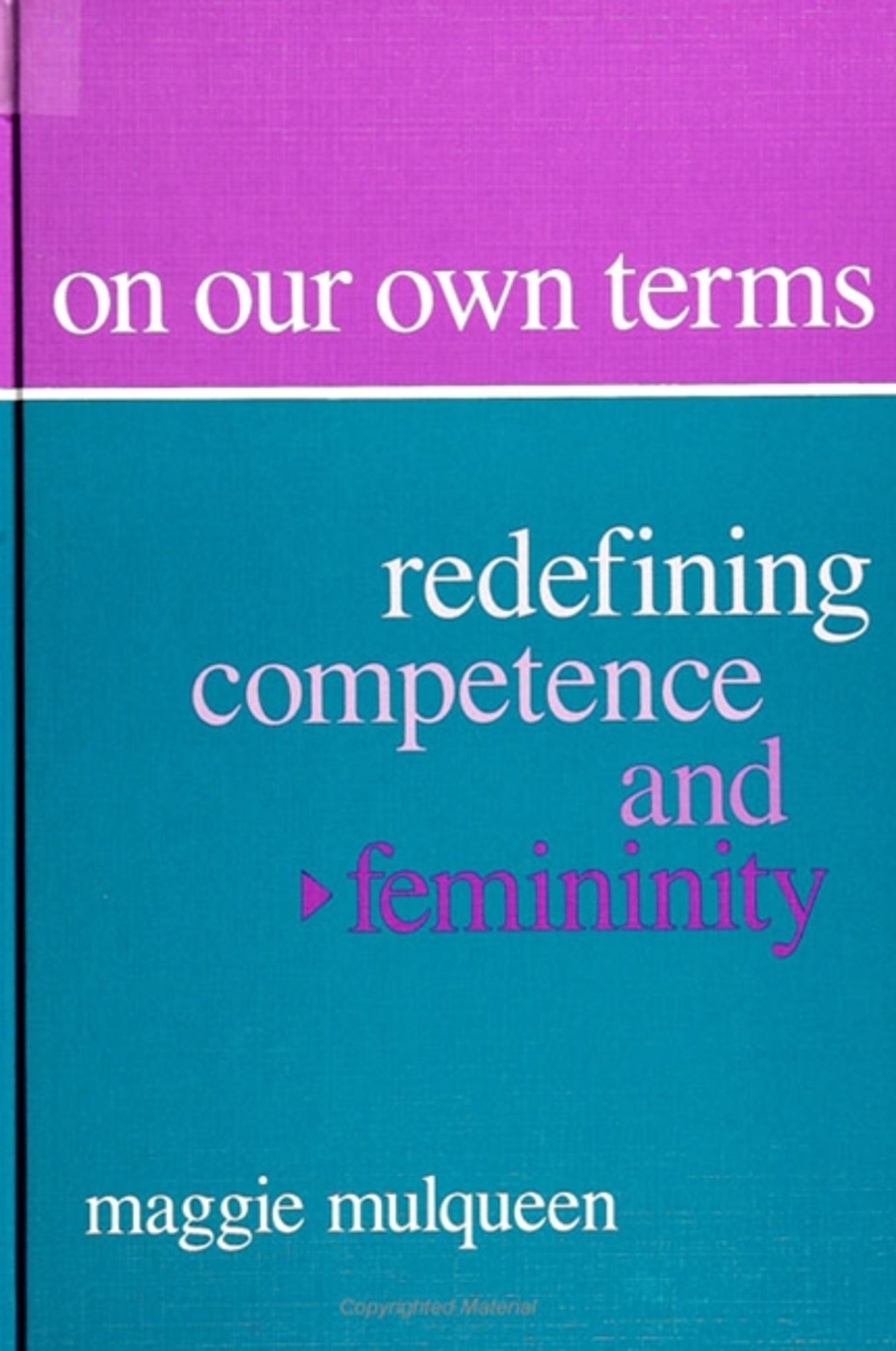We're sorry. An error has occurred
Please cancel or retry.
On Our Own Terms

Some error occured while loading the Quick View. Please close the Quick View and try reloading the page.
Couldn't load pickup availability
- Format:
-
01 July 1992

By redefining current theories of competence motivation and sex-role identity, this work offers a powerful reconceptualiztion of what it means to be a competent woman in today's society. Analyses of case studies of competent women lead to a new theory that enables women to attain positive self-esteem based on internally desired and determined criteria. This new theory challenges prevailing theories of competence motivation and sex-role identity development that assume competence and femininity to be mutually exclusive.


"The text blends traditional psychological theory with feminist theory and qualitative research methods. Mulqueen advances White's thinking on competence with both psychological insights that take gender seriously, and structural insights that make psychology responsive to social structural conditions. The book is significant theoretically, methodologically, and as a feminist critique of traditional psychology." — Michelle Fine, University of Pennsylvania
"On Our Own Terms offers a new view of work, presenting a perspective that interweaves notions of competence, sex role identity, social norms and self esteem. We come to understand how these factors influence women's development and to consider what this might mean if we took women's dilemmas in the workplace seriously. Thus, the book offers an important set of ideas for teachers, therapists, and any woman who is considering how to shape a life full of good work and love." — Jill Mattuck Tarule, co-author, Women's Ways of Knowing: The Development of Self, Voice, and Mind
"It is well organized, clearly written, and thoughtful. It provides a research background and a theoretical context. Mulqueen advances theory in a most interesting and convincing manner by her in-depth case studies. Her concept of balancing is conceptually mature and needed; she transcends either/or categorical thinking and demonstrates how to focus on process.
"It is refreshing, and welcome, to read such clear, convincing, and compelling writing. The topic is of vital significance, not just for women's career development, but for their psychological development and well being." — Mary Lou Randour, Washington Society for Psychoanalytic Psychology
Acknowledgments
Chapter 1. The Dilemma
Chapter 2. Four Women
Chapter 3. Tracing the Roots of the Dilemma:
The Developmental Antecedents to Balancing
Chapter 4. Pivotal Decisions
Chapter 5. Renegotiating Priorities
Chapter 6. Balancing: A Model for Resolving the Dilemma
Epilogue The Value of Listening
Appendix
Bibliography
Index



